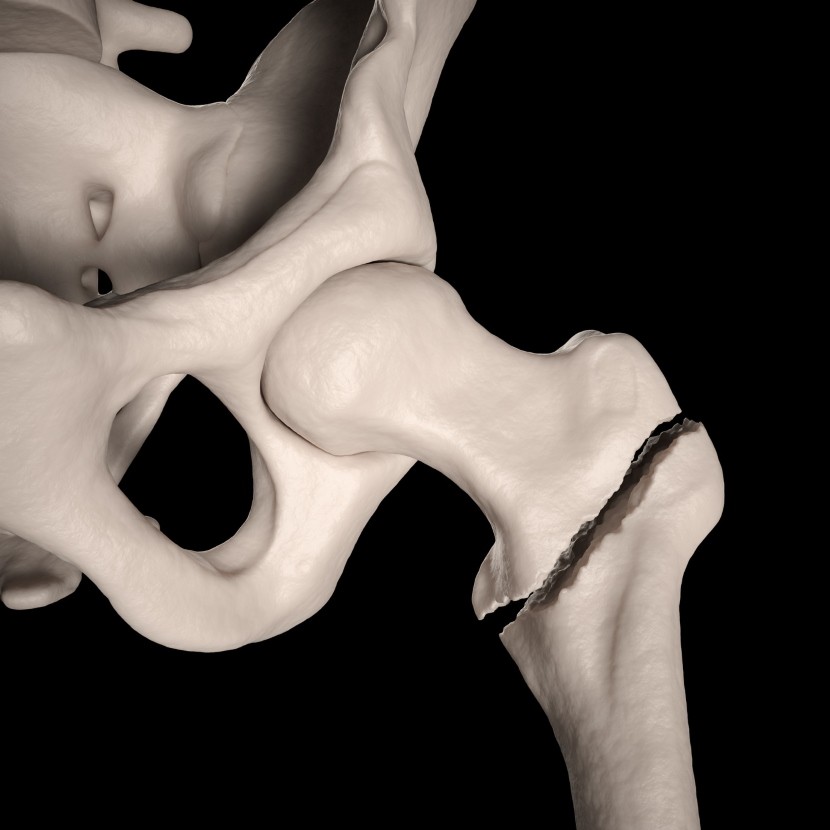Many doctors prescribe antidepressant medications if patients insist or if physicians know of too few other tools in their toolbox when it comes to treating depression, anxiety, obsessive compulsive disorders, and menstrual symptoms, such as hot flashes and night sweats. No surprise; more than 10 million prescriptions are dispensed annually for antidepressant drugs, such as fluoxetine, citalopram, sertraline, paroxetine and escitalopram. However, these drugs come with a number of side effects, including headache, dizziness, diarrhea, constipation, insomnia, weight gain, heart rhythm problems, and erectile dysfunction. New evidence is beginning to emerge that the use of antidepressants may increase the risk of fracture.
Researchers at the University of Nottingham, England, studied the relationship between the use of antidepressants and the likelihood of suffering from hip fracture. This study involved more than 11,341 users of antidepressant medications. The risk of hip fractures of these subjects was compared with 29,089 individuals who were not on any antidepressant medication. Researchers found out that users of antidepressants were more likely to break a hip bone than non-users of these drugs.
The findings of this study are similar to the results of another study published in the Osteoporosis International Journal. Data from this study revealed that the use of selective serotonin uptake inhibitors (SSRIs), a class of antidepressant drugs, may double the risk of fracture in adults in their 50s or older. Selective serotonin reuptake inhibitors (SSRIs), such as fluoxetine and sertraline, are currently the drugs of choice for treating depression. These SSRIs constitute about 65% of the antidepressants prescribed by doctors.
Low serotonin levels are believed to be the cause of many cases of depression. Serotonin is also known as the happiness chemical. Most antidepressants, especially the SSRIs, work by inhibiting the uptake of serotonin by the body cells, thereby elevating the amounts of serotonin utilized by the brain cells to help regulate our mood. Evidence has also shown that serotonin plays a vital role in the formation of new bone cells. "If you alter the ability of the bone to use serotonin, you will get a reduction in bone density," says David Gotlzman, MD, director of the Center for Bone and Periodontal Research at McGill University, Montreal, Canada. A decrease in bone mass increases the risk of fracture.
Depression is a common mental disorder in the United States. An estimated 9 million Americans experience bouts of depression every year. Surprisingly, oil-free, whole-food plant-based diets can help to fight off depression. Filling our plates with plant foods, (while excluding animal foods) has been shown to cut the risk of depression by 62% according to Beezhold, et al. Natural MAO inhibitors found in plants such as berries, onions, mushrooms, apples, legumes, and green leafy vegetables, can help boost our moods, help us to feel better, and keep depression at bay, without drug induced side effects..
Additional Information:
How Effective are Antidepressants? - DrCarney.com Blog - DrCarney.com
Diet can Alleviate Depression and PMS Symptoms - DrCarney.com Blog - DrCarney.com
Milk Increases Bone Fracture and Osteoporosis Risk - DrCarney.com Blog - DrCarney.com
Milk Increases Bone Fracture and Osteoporosis Risk - DrCarney.com Blog - DrCarney.com
